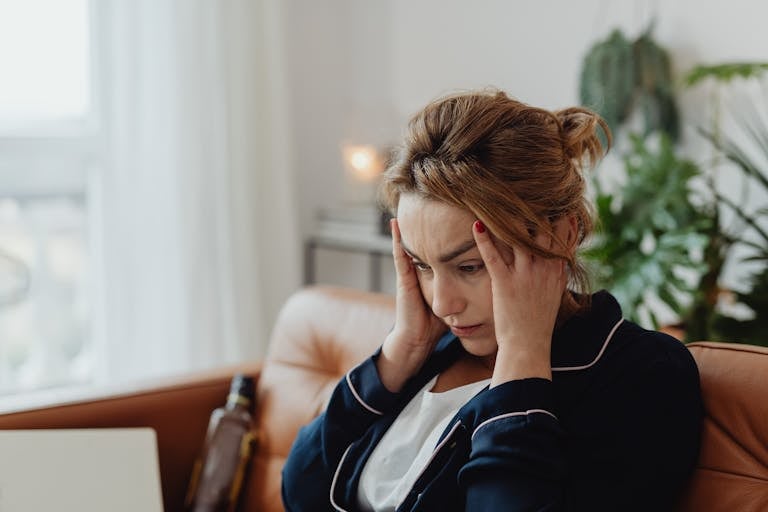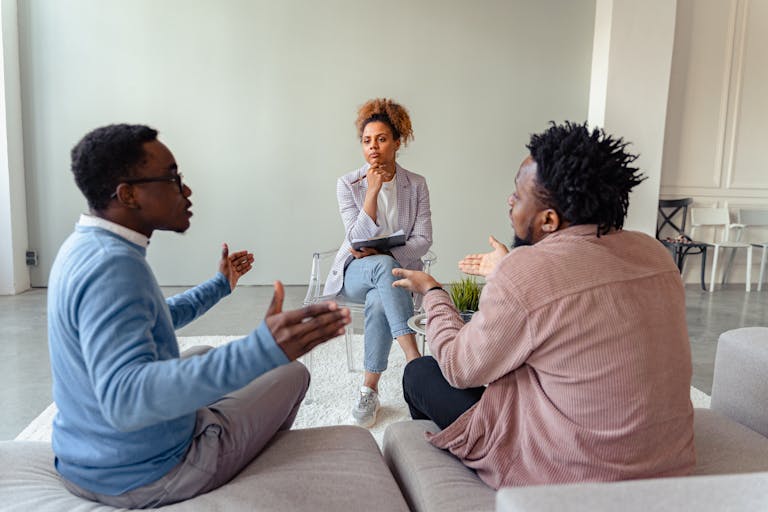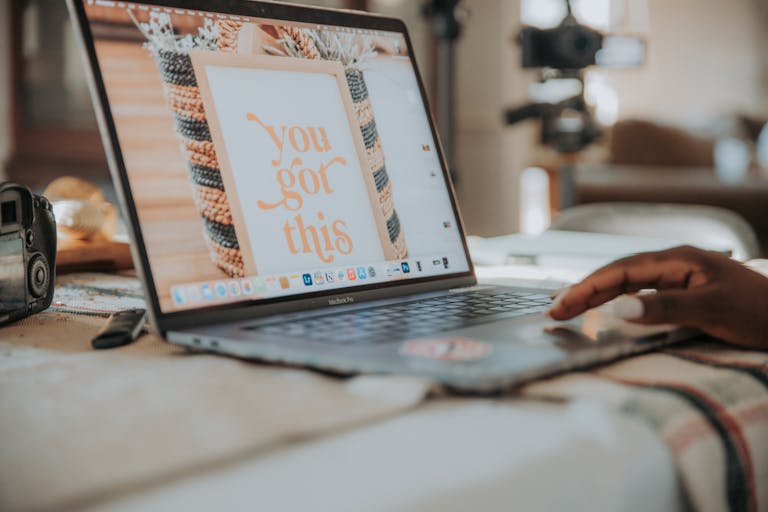Mental health issues affect millions of adults every year, highlighting the critical need for awareness and support. In fact, data shows that a significant number of adults have faced mental health problems in the past year, underscoring the ongoing urgency of the issue.
Yet, when a crisis strikes, many of us feel unprepared to help. We are taught how to perform CPR or apply a bandage, but what do we do when a friend is having a panic attack or a family member expresses feelings of hopelessness?
Mental health emergencies, including those related to mental illness, are as common and as serious as physical ones. Just as physical first aid can stabilize an injury and prevent it from worsening, mental health first aid can provide immediate support to someone in distress. It’s a skill that can prevent a crisis from escalating and, in some cases, save a life.
This guide will explain what mental health first aid is, why it is essential, and how you can develop the skills to support those around you.
What is Mental Health First Aid?
Mental health first aid is the initial help offered to a person developing a mental health problem or experiencing a mental health crisis. Support is provided until an appropriate professional treatment is received or the crisis resolves. The aim is to ensure the person is guided toward appropriate professional help, connecting them with the right healthcare professionals or specialists for further treatment.
The core principle is simple: provide immediate, temporary support. The goal is to provide initial support until professional help is available. You don’t need to be a therapist to offer mental health first aid, just as you don’t need to be a doctor to administer CPR. The goal is to bridge the gap between the onset of a crisis and professional help.
Key components include:
- Recognizing and identifying the warning signs of mental health problems, including showing signs of distress.
- Offering non-judgmental support and reassurance.
- Guiding the person to appropriate professional resources.
Mental health first aid can be provided by a trained first aider—someone who has completed mental health first aid training. The first aider is equipped to assist individuals in crisis by recognizing, understanding, and responding to mental health and substance use challenges.
The role of the first aider is to assist those experiencing mental health issues or crises, including mental disorders, by providing initial support and helping them access appropriate care.
Mental health first aid training covers a range of mental health challenges, including mental disorders, and teaches participants to identify, understand, and respond to people showing signs of mental health or substance use problems. The training helps people understand the nuances of mental health challenges, enabling more effective and compassionate support.
Why Mental Health First Aid Matters
The need for mental health support is significant. Statistics show a large gap between the number of people who need mental health care and those who receive it, as not everyone with mental health issues seeks or receives help. Many face challenges such as stigma, lack of awareness, or barriers to accessing care. Early intervention can prevent minor mental health challenges from turning into major crises, improving long-term outcomes for individuals.
When people are equipped with mental health first aid skills, they can make a real difference. A supportive conversation can de-escalate a panic attack. Recognizing the signs of depression can lead a friend to seek professional help sooner.
However, negative attitudes and stigma often prevent individuals from reaching out or accepting support. This ripple effect strengthens families, workplaces, and entire communities. Untreated mental health conditions and related challenges have substantial personal and societal costs, and providing timely support can help mitigate these impacts.
Recognizing Mental Health Emergencies
It’s important to distinguish between everyday stress and a more serious mental health concern. While everyone feels sad or anxious sometimes, a crisis often involves significant changes in behavior or mood that require immediate intervention, especially in crises.
Common warning signs of a mental health crisis include:
- Sudden and extreme changes in behavior or mood.
- Withdrawal from friends, family, and usual activities.
- Expressing feelings of hopelessness or being a burden.
- Neglecting personal hygiene.
- Increased substance use.
- Warning signs related to health and substance use, such as changes in drinking or drug habits, or other mental health and substance concerns.
- Talking about suicide, suicidal thoughts, or self-harm.
If someone is talking about suicide or expressing suicidal thoughts, or engaging in self-harm, it’s a sign that immediate professional help is needed. In other situations, supportive listening might be the most appropriate first step.
Essential Mental Health First Aid Skills
Developing a few key practical skills through evidence-based training can prepare participants to respond effectively and compassionately during a mental health crisis. These skills help train individuals to assist those in crisis until professional help is available.
Active Listening and Communication
Being fully present and truly hearing what someone is saying is one of the most powerful forms of support.
- Helpful phrases: “I’m here for you,” “Thank you for telling me,” “That sounds really difficult.”
- Phrases to avoid: “Just think positive,” “It could be worse,” “You just need to get over it.”
- Asking about suicide: It is safe and important to ask direct questions if you are concerned someone is suicidal. You can ask, “Are you thinking about killing yourself?” This does not plant the idea in their head; instead, it can be a relief for them to share their feelings.
Creating a Safe Environment
Your primary goal is to ensure the person is safe.
- Find a private, quiet space to talk.
- If you are concerned about self-harm, try to remove potential sources of harm, like sharp objects or medications.
- Stay calm and grounded. Your calm presence can help de-escalate the situation.
Connecting to Resources
Guiding someone to professional help is a critical step.
- Key resources: Know the numbers for crisis hotlines like the 988 Suicide & Crisis Lifeline. Be aware of local mental health services or employee assistance programs that can help connect individuals to the support they need.
- Offering help: You can offer to help them make a call or find a therapist. Say something like, “Would you like me to help you find a professional to talk to?”
- Follow-up: Check in with the person a day or two later to show that you still care.
Building Trust and Rapport
A person in distress needs to feel safe and understood.
- Approach the person with empathy and without judgment.
- Listen more than you speak. Let them share their story at their own pace.
- Validate their feelings by saying things like, “It makes sense that you feel that way.”
Promoting Self-Care for Supporters
Supporting someone through a mental health crisis can be emotionally draining.
- Set boundaries to protect your own well-being. You cannot pour from an empty cup.
- Talk to a trusted friend or professional about your own feelings.
- Recognize that you are not a therapist, and it’s okay to step back once professional help is in place.
Build These Skills in Your Community
You can help create a more supportive environment by encouraging mental health literacy.
- Seek formal training: Organizations like the National Council for Mental Wellbeing offer Mental Health First Aid courses, including both virtual and in-person options. These structured, evidence-based courses, such as MHFA training, provide practical skills to recognize and respond to mental health and substance use issues. Health First Aid MHFA is designed as an early intervention, skills-based training to help individuals support others in crisis.
- Start conversations: Talk openly about mental health with friends, family, and colleagues to reduce stigma. Sharing your experiences can encourage others to feel comfortable doing the same.
- Practice empathy: Make a conscious effort to listen without judgment in your everyday interactions. Empathy helps build trust and shows others they are not alone.
- Educate yourself: Learn about common mental health conditions and their symptoms. Being informed allows you to offer better support to those who may be struggling. First aiders—those who complete MHFA training—play a vital role in providing immediate assistance and support in various settings, including workplaces, families, and the broader community.
- Encourage professional help: Gently suggest seeking a therapist or counselor when someone is struggling. Professional support is critical for a deeper understanding and healing.
- Take care of your own mental health: Practice self-care and recognize your own limits. Supporting others starts with making sure you are in a good place mentally.
These programs also have a significant impact on young people, with specialized training available for adults who interact with adolescents, as well as Teen Mental Health First Aid courses designed for high school students. This ensures that both teens and those who support them are equipped to recognize and respond to mental health challenges.
Transform Your Community Through Mental Health First Aid
Learning mental health first aid can make a real difference. It equips you to recognize signs of mental health struggles, respond effectively in a crisis, and provide support that encourages others to seek help. Just like physical first aid, these skills could save a life.
Once you’ve learned these skills, we challenge you to share them with three people in your network. Together, we can break the stigma and build a community that’s informed, compassionate, and ready to help.
Organizations like the National Council for Mental Wellbeing offer formal training to help you develop these vital skills. Explore their resources and find mental health first aid courses. And if you or someone you know is in immediate need, don’t hesitate to reach out to crisis resources.
Medical Disclaimer:
This content is for informational purposes only and is not intended as medical advice, diagnosis, or treatment. Always consult with a qualified healthcare professional before making any changes to your diet, exercise, or health routine. Never disregard professional medical advice or delay seeking it because of something you have read on this site.







